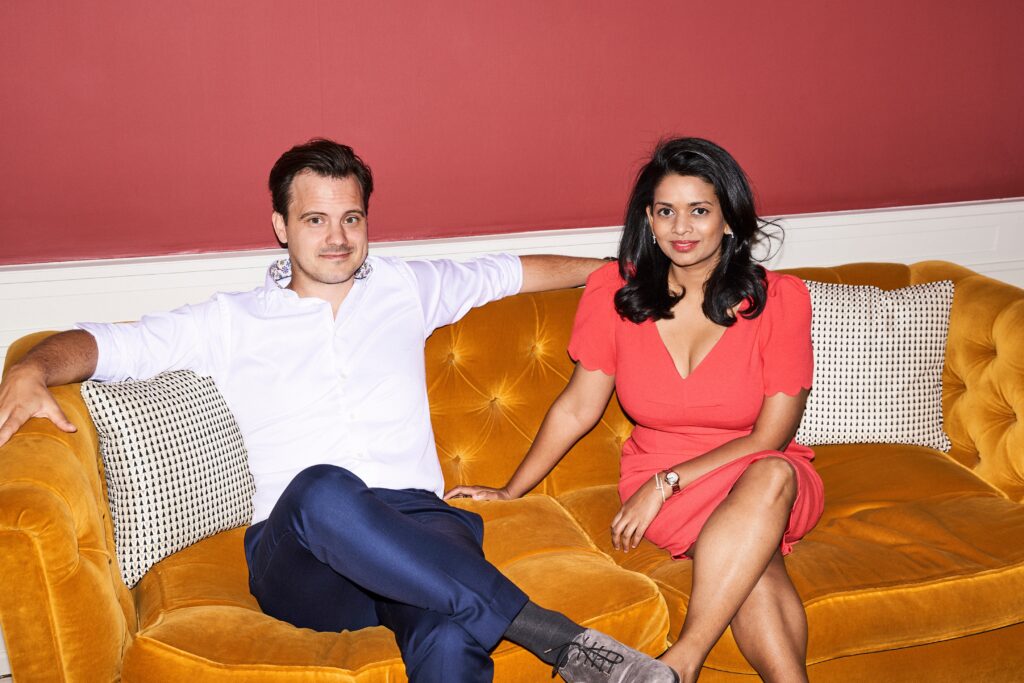Dr Fiona Pathiraja
When you’re working with patients every day you can see that you’re making a tangible difference. Whether you’re the young doctor taking a blood sample in A&E, or the consultant physician determining a difficult diagnostic decision about a complex cancer patient – each interaction is meaningful.

It was early on in my medical career when I became interested in the bigger picture. I wondered how hospitals were managed and run and how doctors fit into the wider health landscape of economics, public health and policy. By looking up from individual patient notes and focusing on the bigger picture I asked myself one question: was it only frontline clinicians who can affect the most meaningful impact on people’s lives?
However, as a junior doctor I soon discovered that trying to bring about change in the NHS is like wading through treacle. Hospitals aren’t against adopting new ideas per se, but innovation is often siloed. Dynamic young doctors are slowly convinced by the system that its not your job to affect change, and you’re often reminded to just ‘stay in your lane’.
In 2008 I decided to take time out of the NHS to work as a management consultant. The change was stark. I was immersed into an environment where innovation, technology, and bold visions were encouraged and adopted at scale. Importantly, my youthfulness wasn’t perceived as an impediment to creating change and I was treated both as an adult and a valued member of the team. As a management consultant one of my clients was the Department for International Development (DFID) and eventually I was headhunted into the Department of Health in 2009 where I was clinical advisor to the then NHS Medical Director Sir Bruce Keogh. During this period I ran national policy projects around medical education.
With this experience under my belt, and full of vigour and armed with lots of new transferable skills, I returned to the NHS in 2011 as a radiology resident at UCLH. I was clear that I wanted to become an agent for real and systemic change. Medical training is tough but rewarding work and we were helping people every day, but I still wanted to know if we could help more people and this led me to simply ask: what’s wrong with the way hospitals are run?
As I was finishing my radiology training I attended London Business School to gain an MBA on my path to one day become a hospital CEO. This experience crystallised my conviction that I wanted to build something to have a big impact on healthcare. After the MBA, back at UCLH in 2017, I soon realised that my mission wouldn’t be based in a hospital.
It takes a long time to have significant influence in hospital. You need to spend ten years earning your stripes as a young doctor. Another several years as a consultant – working in big multidisciplinary teams, seeing lots of patients and honing your clinical experience. And then, maybe, you’d be in a position to be a budget holder in charge of hospital innovation projects. Due to this long road, change often does not come from the doctors on the inside. I realised change needs to start outside, and then be brought into hospitals where it can make a real, positive impact on the lives of patients. That’s why we invest in founders and visionaries who are doing exactly that.
Crista Galli Ventures embodies my vision for bringing innovation to healthcare. This is a vision that started as an embryonic idea in 2006 when I qualified as a doctor. I believe in a patient-centric digital future of healthcare where the power of data coupled with the transformative power of technology will radically change how we diagnose, treat, manage and prevent disease. I hope that together with our amazing founders we can build this future.
